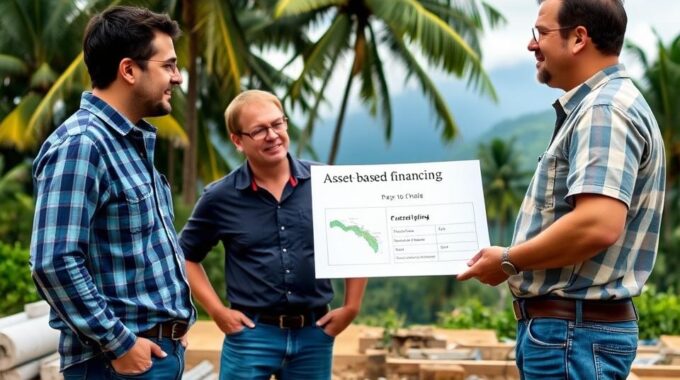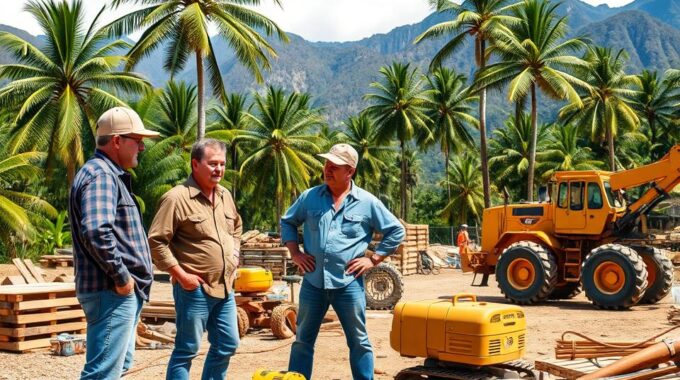Explore our Costa Rica Asset-Based Loan for Development options, tailored for project financing and real estate growth with GAP solutions.

Expert Costa Rica Home Equity Loan Guidance: Insights & Tips
Unlocking the financial potential of your property in Costa Rica is made simple with expert Costa Rica home equity loan guidance from reputable providers like Gap Equity Loans. With expertise in Costa Rica real estate financing, their professional advice simplifies the process of how to get a home equity loan in Costa Rica and allows homeowners to secure competitive interest rates and terms for their specific financial needs.
Key Takeaways
- Gap Equity Loans offer valuable insights for homeowners seeking home equity loans in Costa Rica.
- Costa Rica real estate financing solutions made easy with personalized guidance.
- Discover how to get a home equity loan in Costa Rica with expert advice.
- Secure competitive interest rates and flexible loan terms with Gap Equity Loans.
- Enhance your financial potential by leveraging your property’s equity in Costa Rica.
Understanding the Fundamentals of Home Equity Loans in Costa Rica

In Costa Rica, homeowners can leverage their property’s equity to access funds for various financial needs. Typically, borrowers need between 30% to 50% of the property’s appraised value as equity to qualify for a home equity loan in Costa Rica. These loans present a more cost-effective alternative to other financing options due to their lower interest rates. To better understand home equity loans in this beautiful Central American country, it is essential to grasp essential factors that determine the loan amount and interest rates offered, such as creditworthiness and property value.
Several Costa Rica mortgage advice experts, like Gap Equity Loans, provide helpful guidance to borrowers seeking the best home equity loan rates in Costa Rica. To offer a clearer picture of the process behind these loans, let’s dive into the crucial elements one must consider:
- Creditworthiness
- Property Value
- Equity Percentage
- Loan Terms and Conditions
Creditworthiness plays a significant role in determining eligibility for a home equity loan in Costa Rica. Lenders assess the borrowers’ financial capacity, reviewing their credit history and evaluating their ability to repay the loan in a timely manner.
Home equity loans provide an attractive option for homeowners in Costa Rica who require additional funding to achieve financial goals, such as home improvements or debt consolidation.
The second critical element is the property value, which lenders determine through a professional appraisal. To secure a home equity loan, the property’s appraised value must be sufficient to cover the required equity percentage on top of any outstanding mortgage balance.
Equity percentage is an essential factor in loan eligibility. The amount of equity a homeowner holds in their property impacts the loan amount they can qualify for and the interest rate they receive.
Lastly, it is crucial to be aware of the loan terms and conditions when pursuing a home equity loan in Costa Rica. These conditions include the interest rate, repayment schedule, loan duration, and any additional fees that may apply. Borrowers should carefully review these terms to ensure they make informed decisions aligned with their financial goals.
| Key Factors | Role in Home Equity Loans |
|---|---|
| Creditworthiness | Determines eligibility and interest rate |
| Property Value | Influences loan amount and equity requirement |
| Equity Percentage | Impacts loan amount and interest rate |
| Loan Terms & Conditions | Dictate repayment schedule, duration, and fees |
Understanding the fundamentals of home equity loans in Costa Rica equips homeowners with the knowledge required to make educated decisions regarding their real estate financing options. By working with professional and experienced experts like Gap Equity Loans, homeowners can successfully navigate the process and unlock the monetary potential of their properties.
Strategic Planning for Costa Rica Home Equity Loan Success
Finding the best home equity loan rates in Costa Rica can help homeowners save money and achieve their financial goals more efficiently. Strategic planning plays a significant role in navigating the various aspects of the home equity loan process, including finding competitive loan rates and terms, understanding loan qualifications and property value assessments, and managing loan repayments effectively.
Finding Competitive Loan Rates and Terms
Gap Equity Loans offers competitive Costa Rica property loan options for homeowners, with interest rates ranging from 12% to 16% based on the loan-to-value ratio. The loan terms range between 6 months to 3 years, accommodating various financial timelines. Borrowers should consider the total cost of the loan, including potential additional fees like closing costs, appraisal fees, and lender fees. To compare loan options easily and find the best rates, borrowers may use a home equity loan calculator for Costa Rica.
Navigating Loan Qualifications and Property Value Assessments
Meeting Costa Rica home loan qualifications involves having adequate equity in the property and a positive credit history. An accurate property appraisal in Costa Rica is a critical step in determining the market value of the property and assessing the available equity. All legal documentation, such as property deeds and tax records, must be up-to-date, as providers like Gap Equity Loans require these evaluations to ensure borrowers can safely be afforded the loan amount requested.

Managing Repayment: Tips and Common Pitfalls
Effectively managing home equity loan repayments in Costa Rica involves choosing suitable repayment options like fixed monthly payments, adjusting for variable interest rates, or considering balloon payments towards the end of the loan term. Borrowers should strategically plan budgeting, set up automatic payments, track expenses, prioritize loan payments, and possibly make extra payments to accelerate the loan repayment process. Awareness of repayment methods, such as fixed monthly payments or balloon payments, can impact the total interest paid and should be chosen based on the borrower’s financial planning.
“Strategic planning plays a significant role in navigating the various aspects of the home equity loan process, including finding competitive loan rates and terms, understanding loan qualifications and property value assessments, and managing loan repayments effectively.”
By carefully considering the factors mentioned above, homeowners can successfully secure the best home equity loan rates in Costa Rica and make the most of their property investments for future financial success.
Conclusion
Home equity loans in Costa Rica, provided by trusted lenders like Gap Equity Loans, offer a valuable opportunity for homeowners to finance various ventures such as property improvements or debt consolidation in Costa Rica. It is crucial for borrowers to assess their financial goals, comprehend the intricacies of home equity loans, and choose suitable repayment methods. With strategic planning and proficient guidance, homeowners can responsibly leverage the equity of their property for financial success.
Potential borrowers should take advantage of comprehensive services like those offered by GAP Investments and Real Estate for a more rounded approach to property financing in Costa Rica. By understanding the importance of factors such as equity release in Costa Rica, suitable loan rates, and the significance of property appraisals, borrowers can effectively manage their finances.
In conclusion, home equity loans are an advantageous tool for homeowners in Costa Rica who wish to utilize their property’s equity to meet their financial needs. By partnering with trusted providers like Gap Equity Loans and seeking the guidance of experts such as those at GAP Investments and Real Estate, homeowners can unlock the full potential of their property while securing financial stability for their future.
FAQ
What are the typical interest rates for home equity loans in Costa Rica?
Interest rates for home equity loans in Costa Rica typically range from 12% to 16%. Gap Equity Loans is known to offer such competitive rates based on the loan-to-value ratio.
What is the minimum equity requirement to qualify for a home equity loan in Costa Rica?
In Costa Rica, homeowners usually need between 30% to 50% of the property’s appraised value as equity to qualify for a home equity loan.
How long are the loan terms for home equity loans in Costa Rica?
Loan terms for home equity loans in Costa Rica range from 6 months to 3 years. This flexibility helps borrowers accommodate different financial timelines.
What are the key factors to consider when applying for a home equity loan in Costa Rica?
Key factors to consider when applying for a home equity loan in Costa Rica include having adequate equity in the property, a positive credit history, and an accurate property appraisal. Legal documents, like property deeds and taxes, must also be up-to-date.
Can I use a home equity loan in Costa Rica for debt consolidation or property improvements?
Yes, home equity loans in Costa Rica can be used for various financial needs, such as debt consolidation or property improvements. These loans offer a cost-effective solution for accessing funds compared to other financing options.
How can I effectively manage home equity loan repayments in Costa Rica?
Effectively managing home equity loan repayments in Costa Rica involves budgeting, setting up automatic payments, tracking expenses, prioritizing loan payments, choosing suitable repayment options, and possibly making extra payments to accelerate the repayment process. Understanding different repayment methods can impact the total interest paid and should be chosen based on the borrower’s financial planning.
Are there any recommended providers for home equity loans in Costa Rica?
Gap Equity Loans is a trusted provider that offers insightful guidance on home equity loans in Costa Rica. Additionally, GAP Investments and Real Estate provides comprehensive services for property financing in Costa Rica.
Article by Glenn Tellier (Founder of CRIE and Grupo Gap)



